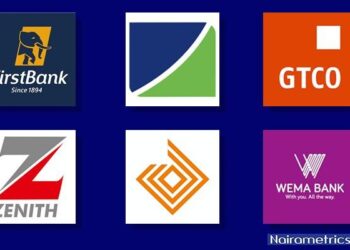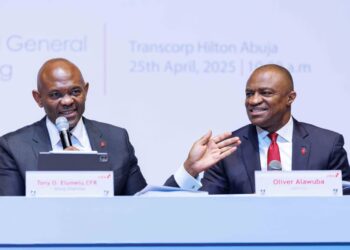In this very lengthy interview with THISDAY Phillips Oduoza explains why bank cost to income ratio is high, how about 18 of UBA subsidiaries abroad are profitable and will even make more money this year, the effect of regulation on their business as well as their bet that their exposure to the power sector will eventually pay off. This particular question caught my attention.
Q: In spite of the laudable efforts you have taken to clean your books and return to profitability, these measures are yet to reflect in the pricing of your stocks like other frontier banks in the capital market. What can you do more to convince the market that you are like other top banks in the country which will reflect in the payment of premium for your stock?
A: For UBA, you are right that the price to book is low compared with other banks and I believe this situation is going to change. In 2011 when we cleaned up our books, we declared a loss which was very strange in this environment. We had to meet all stakeholders at the stock market; stockbrokers, financial journalists and other players in the market and addressed them on why we decided to clean up our books. What we did was new in this environment but very common amongst major global financial institutions. Given that we operate in major financial centres with regulators in 21 jurisdictions, it was expedient for us to do the right thing and it is in line with global best practice. As you know we operate in London where we are regulated by the Financial Regulatory Services Authority (FSA) and New York where we are regulated by the Office of the Comptroller of Currencies (OCC). In addition to that, we operate in 19 other jurisdictions in Africa, which makes us not a typical Nigerian bank. So, we wrote off all the distressed loans and sold others to Asset Management Corporation of Nigeria (AMCON) while taking the corresponding haircut.
Let me emphasize that when we presented this plan, people asked us, why do you want to do this? They told us we could write it off over a period of time but we said no. We insisted, we had to do that. We believed that once we clean our books, we would now start the path of renewal. Stakeholders on the Nigerian Stock Exchange (NSE) were initially alarmed. So, some people started selling their shares and UBA shares dropped to a low of N1.65. But some analysts saw the wisdom in our decision and they started buying gradually and the share price of UBA started to move back upwards. In the subsequent first quarter of 2012, UBA made a profit, second quarter, we made a profit and everybody started picking their shares. In 2012, UBA had the most appreciation in its share price in the stock market among financial services institutions and we closed 2012 with a return to profit.In 2013, the share price sustained its upward momentum and by December of last year, UBA has also seen a significant appreciation in the stock market. I believe the same thing will repeat itself in 2014. I also believe analysts will see UBA from a new perspective in 2014. Analysts will recognize that the bank’s growth has been a sustained growth. If anything at all, the balance sheet is very strong and robust. So, I believe that an upward review of the bank’s rating is going to take place. Our current pricing is based on people’s memory not on our performance and prospects.
Investors also lost a lot of money during the financial crisis, so a lot of them have not come back to the market and may not come back to the market for some time. There is definitely going to an upward movement in our share price because our current performance shows that we are a bank to invest in.
It’s an interesting interview and you can follow the link below for the rest of the Interview

















